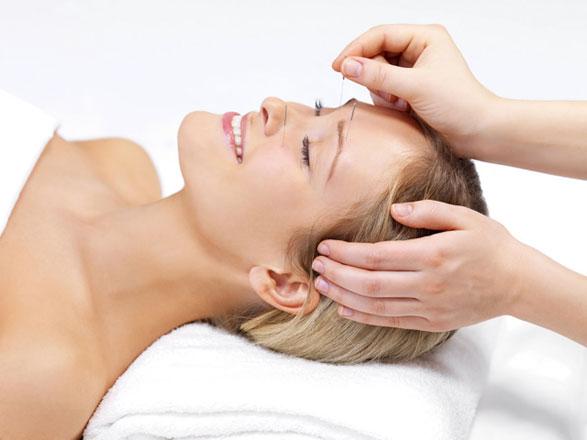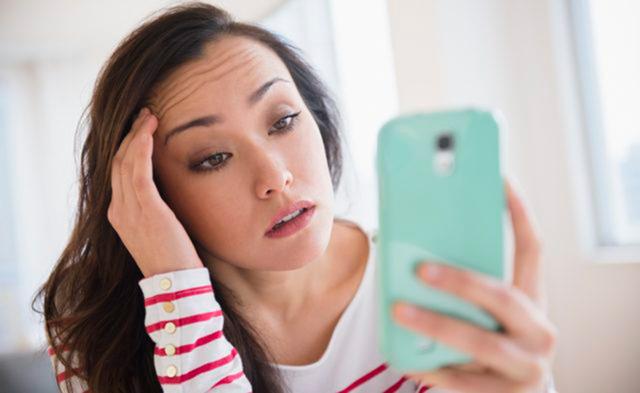You are here
Acupuncture might help prevent migraines
By Reuters - Feb 25,2017 - Last updated at Feb 25,2017

Photo courtesy of acupuncturesgp.com
For people with a certain type of migraine headache, regular acupuncture treatments may help reduce the frequency of these debilitating attacks, a recent study from China suggests.
Patients who suffered migraines without aura, and who received five true acupuncture treatments per week for four consecutive weeks had about one less headache per month than similar patients who got the same number of sham acupuncture treatments, researchers report.
“Acupuncture should be considered as one option for migraine prophylaxis in light of our findings,” the authors write in JAMA Internal Medicine.
About 18 per cent of women and 6 per cent of men in the US suffer from migraine headaches in a given year, according to a 2001 study, making the condition a leading cause of disability.
Acupuncture is commonly used to treat migraines in China, however, studies of whether it works for migraine prevention have been inconsistent, the study team notes.
Ling Zhao of Chengdu University of Traditional Chinese Medicine in Sichuan, China, and colleagues recruited 249 adults who had an average of two to eight migraines without aura per month from three clinical centres in China.
For the study, participants kept track of their migraine headache frequency and severity for four weeks before being randomly assigned to receive true acupuncture treatment, sham acupuncture treatment or to be put on a waiting list for treatment.
People in both the true and sham acupuncture groups received 20 treatments with acupuncture needles and electrical stimulation, each lasting 30 minutes.
The true acupuncture group was treated at four acupuncture points thought to affect headaches and with enough electrical stimulation to elicit a “Deqi” sensation, which includes “soreness, numbness, distention or radiation that indicated effective needling”, according to the authors.
For the sham treatment, the needles were placed in areas not known to be acupuncture points and the deqi sensation was not induced.
At 16 weeks, the number of migraines reported in the true acupuncture group fell by about three attacks per month, while people in the sham acupuncture group had two fewer attacks per month.
Among the study’s limitations, about 20 per cent of the participants had previous experience with acupuncture, and it is not known how many may have been able to guess whether their treatments were real or sham.
“Placebo response is strong in migraine treatment studies, and it is possible that the Deqi sensation... that was elicited in the true acupuncture group could have led to a higher degree of placebo response because there was no attempt made to elicit the Deqi sensation in the sham acupuncture group,” Dr Amy Gelfand writes in an accompanying editorial.
Gelfand, a neurologist at the University of California, San Francisco, told Reuters Health that the placebo effect is interesting and important, especially in migraine studies, but she thinks about it differently as a researcher and as a clinician.
“When I’m a researcher, placebo response is kind of a troublesome thing, because it makes it difficult to separate signal from noise,” she said. But when she is thinking as a doctor about the patient in front of her, placebo response is welcome, Gelfand said.
“You know, what I really want is my patient to feel better, and to be improved and not be in pain. So, as long as something is safe, even if it’s working through a placebo mechanism, it may still be something that some patients might want to use,” she said.
When a patient is interested in a treatment that may have a strong placebo effect, Gelfand added, “There’s a real checklist in my head, with safety being the first thing; and if it seems like it’s safe then I think about things like cost, because often these things are not going to be covered by insurance, but to a certain extent that’s the patient’s decision; and I think about time, because these treatments can be time-consuming.”
It is a good idea to keep your doctor informed of any treatments that you are using, be they over-the-counter supplements or non-pharmacologic behavioural treatments, she said.
“I think that that’s part of the picture, and as a provider, I like to know about all of those things. If for no other reason than it just helps me understand what kind of treatments my patient values and is looking for,” Gelfand said.
Related Articles
PARIS — Swedish researchers said Tuesday acupuncture “appears to reduce crying” in babies suffering from colic.But their work was criticised
A smartphone-based relaxation app could help migraine sufferers reduce the number of headaches they get each month, a small study suggests.&
Acupuncture and yoga could offer relief from the hot flashes of menopause, a new analysis suggests. During hot flashes, women suddenly


















